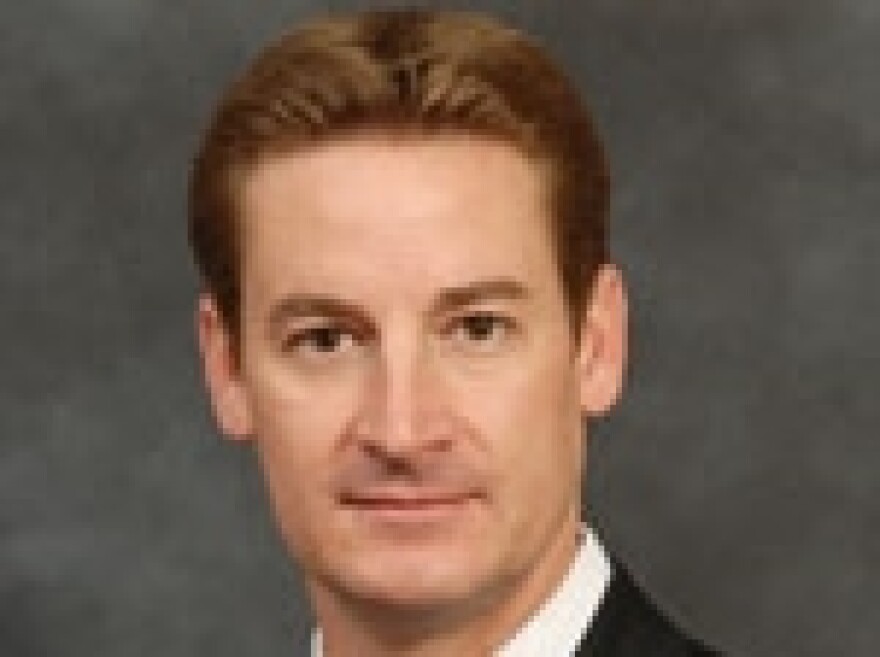A Florida lawmaker has filed a bill that would allow people to carry concealed weapons on the campuses of state colleges and universities.
Rep. Greg Steube, R-Sarasota, said he already planned to sponsor the measure (HB 4005) before a shooting incident last month at Florida State University --- but that the attack, which left three people injured and the gunman dead, helps to make his point. The bill, filed Monday, would apply to people who are licensed to carry concealed weapons.
"I think it (the attack) brings it closer to home for people who think these events don't occur in Florida, or that law enforcement can prevent them from happening," Steube told The News Service of Florida on Tuesday.
He said that although Tallahassee and university police officers reached Florida State's Strozier Library less than five minutes after the shooting, more people could have died in that time.
Steube's bill would accomplish, in part, what a 2011 measure failed to achieve. The 2011 bill was derailed due to another shooting at Florida State. Ashley Cowie, 20, was at a campus party when a gun held by another student accidentally discharged, sending a bullet through her chest. Her father, Robert, a Jacksonville resident, traveled to Tallahassee to lobby against the bill, arguing that putting guns in an area where drugs and alcohol are commonly used would make campuses more dangerous.
Robert Cowie's tearful testimony, coupled with the opposition of then-Sen. John Thrasher, a St. Augustine Republican who took over last month as president of FSU, helped end the bill's chances.
"(Thrasher is) the one who shut it down in the Senate," Steube said. "It appears to be a very personal issue with him."
Steube said he now believes "there's more of a chance that we could get it through the Senate this year." The Senate sponsor of Steube's bill, Sen. Greg Evers, R-Baker, was also the sponsor of the 2011 measure.
In the wake of last month's shooting, a group called Students for Concealed Carry at FSU called for Thrasher to reconsider his stance on allowing guns on campus. The group also said Nathan Scott, a Strozier Library staffer who was shot in the leg, was one of its members. Erek Culbreath, the group's president, argued that Scott and another man, a U.S. Army Infantry combat veteran who "had a clear shot at the shooter," had the training and skills necessary to end the shooting but were powerless to do so under current law.
"We have seen that the current "Gun-Free Zone" policies have done nothing to curb violence, both in our state and nationwide," Culbreath wrote in a Nov. 24 news release. "As criminals don’t abide by these policies, they only serve to prevent victims from having the ability to defend themselves and their peers."
National Rifle Association lobbyist Marion Hammer said Steube's bill didn't originate with the NRA, but she supports it on the grounds that law-abiding citizens who are licensed to carry concealed weapons shouldn't be prevented from carrying firearms in places where they may be in danger.
"The Constitution gives you the right of self-defense," Hammer said. "Those rights are being usurped, and people are not getting the opportunity they are guaranteed."
But House Minority Leader Mark Pafford, D-West Palm Beach, said the answer to gun violence isn't more guns. He also said he'd be more inclined to support the cost of additional security rather than allowing more guns at state universities and colleges.
"We look at these things differently, based on where we come from throughout the state," Pafford said. "Discharging a weapon where I live, the probability of hurting somebody is a lot higher because we are not living one person on 20 acres."
Both Pafford and Steube cited their children as the reasons for their stances. Pafford said he'd be more concerned for his two children, who are students at the University of Central Florida, if more people were carrying weapons on campus.
But Steube, who is also sponsoring a bill (HB 19) that would allow school superintendents to designate people who could carry guns on public-school grounds, said he "wasn't comfortable" with the possibility that his 4-year-old son wouldn't be protected at school.
"Your kids are defenseless until help arrives," he said, citing police response times of six to 11 minutes at schools in suburban areas. He said response times are longer in rural areas.
Pointing to the mass slayings in Newtown, Conn., in 2012, Steube noted that shooter Adam Lanza killed 20 children, six adults and himself in less than four minutes.



